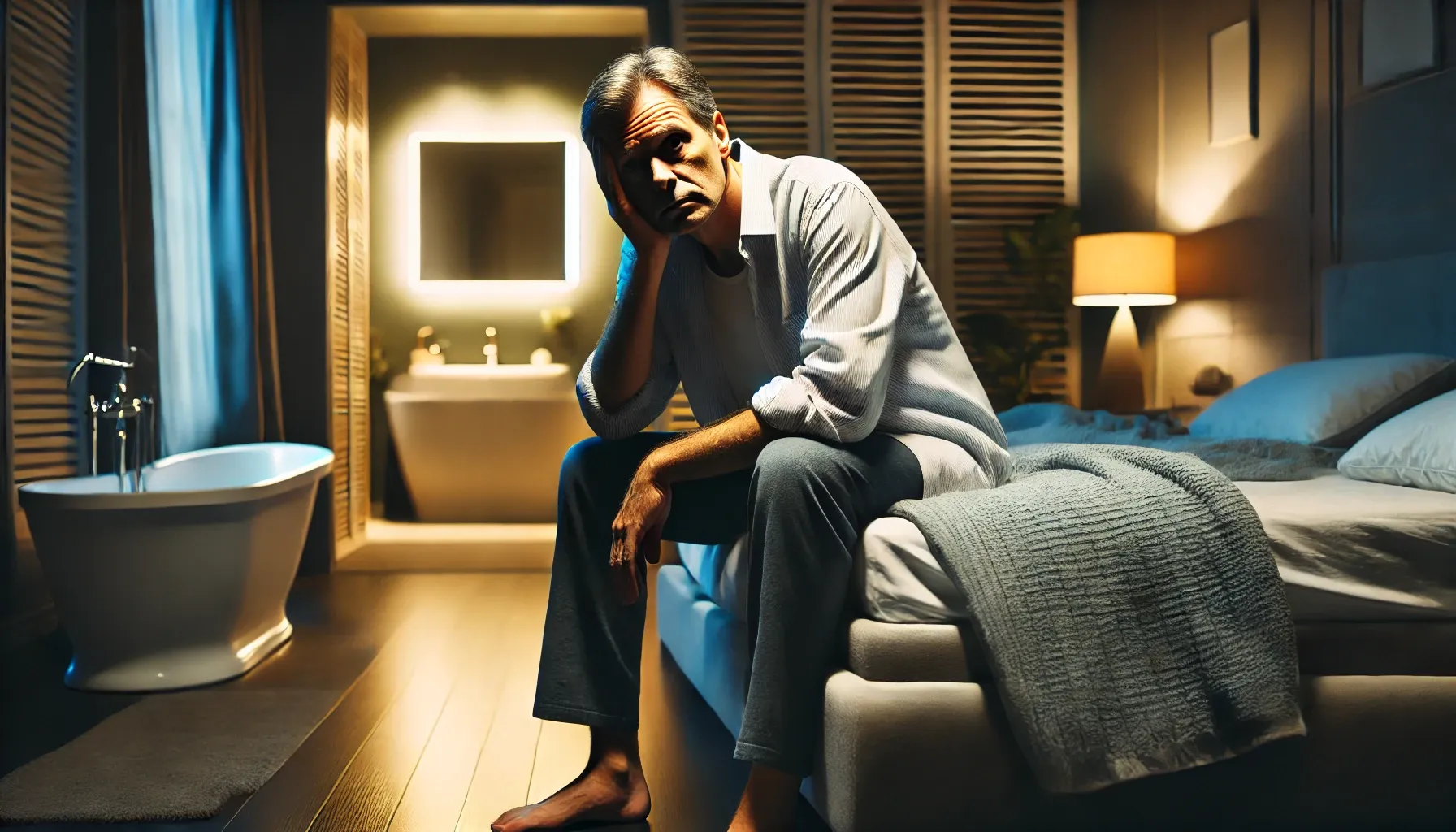🚽 Waking Up to Pee at Night? Here’s What It Means — And How to Stop It
If you find yourself waking up once, twice, or even multiple times a night just to pee — you're not alone. But it’s not just an annoying habit. In fact, nighttime urination can be a sign of an underlying issue.

🌊 What Is Nocturia?
Nocturia is the medical term for waking up at night to urinate — and while it's more common with age, it's not something you have to live with.
It disrupts your sleep cycle, affects your mood and energy, and can even increase your risk of falls if you're rushing to the bathroom in the dark.
😴 Common Causes of Nighttime Urination
Here are some of the most common (and often overlooked) reasons you may be peeing at night:
1. Too Much Fluid Before Bed
Late-night tea, water, wine, or even “just a few sips” can fill your bladder — especially if your kidneys are working overtime in the evening.
2. Caffeine or Alcohol Intake
Both caffeine and alcohol are diuretics, meaning they increase urine production. A glass of wine or cup of coffee late in the day can lead to multiple wake-ups at night.
3. Sleep Apnea
Yes, really! People with untreated sleep apnea often wake up to urinate — even if they don’t realize they’ve stopped breathing.
4. Hormonal Changes (Especially in Aging Adults)
As we age, our bodies produce less antidiuretic hormone at night, leading to more urine output during sleep.
5. Enlarged Prostate (in Men)
This common condition can make it difficult to fully empty the bladder, causing more frequent trips — day and night.
6. Underlying Medical Issues
Diabetes, urinary tract infections, heart failure, or kidney disease can all cause nocturia. If it's sudden or severe, see a doctor.
✅ How to Stop Peeing So Much at Night
Limit fluids 2–3 hours before bed
Avoid caffeine & alcohol after 4 p.m.
Elevate your legs before bedtime to help shift fluid buildup
Treat underlying conditions like sleep apnea or prostate issues
Try timed bathroom trips to train your bladder
Talk to your doctor — in some cases, medications or therapies can help

